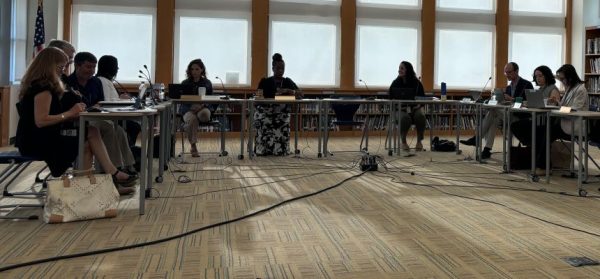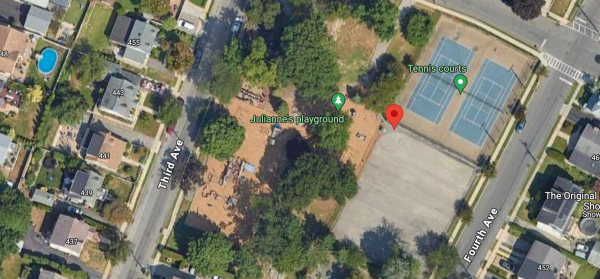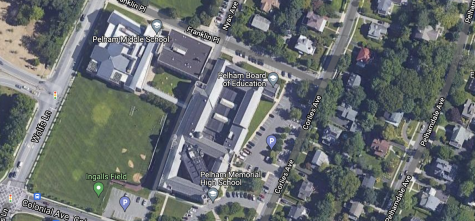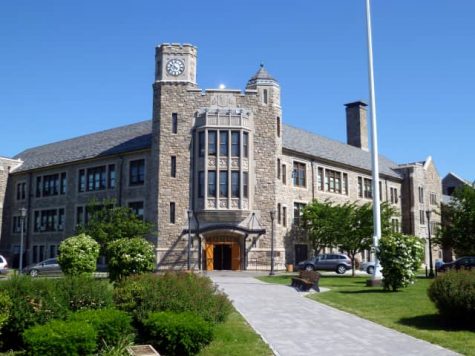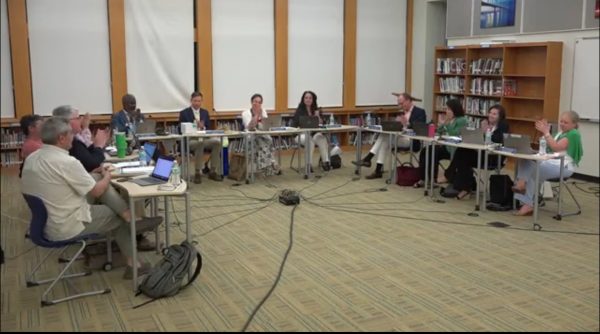Teams at PMS, bonding days, DBT among mental health programs covered at school board work session
Splitting middle school grades into two teams and bonding days and dialectical behavioral therapy at the high school were covered during a Pelham school board work session on student mental health.
“Educators for decades have known that for learning to take place, students have to feel safe and connected,” said Julia Chung, assistant superintendent for pupil personnel. “Our goal was to establish a solid multi-tiered system of supports system in each school and also define what a healthy environment means to the Pelham school community.”
At the middle school, Principal Lynn Sabia said, splitting the grades into two teams “is a systematic approach to deliver supports to our students. We have two teams of core teachers who work together to plan, develop curriculum, meet regularly to help support students socially and emotionally as well.”
Separating the grades is key for Pelham Middle School because of the developmental needs that are specific to each age group. “We have different behavioral strategies that we do across all grade levels,” said Sabia. Different assemblies, curriculums and drop-in talks by psychologists are all designed to fit different grades in the school.
Pelham Memorial High School Principal Mark Berkowitz, social worker Kristin Quintano and Director of Guidance Eugene Farrell all stressed the importance of student bonding, highlighting freshman year bonding days, the student run club fair and peer leadership experiences.
Quintano covered the importance of dialectical behavioral therapy (DBT) within the high school and the major components of DBT that PMHS is using. The program that the high school has in place is called DBT Steps-A and emphasizes key aspects of mindfulness for students. “The underlying philosophy of DBT is that two things can seem like opposites, but in fact can both be true at the same time,” Quintano said.
The therapy curriculum has provided the high school with a way to teach mindfulness during the past three years, she said. Recently, the health teachers in the high school were trained in the beginning steps of DBT, which allows for them to incorporate the therapy into their lessons.
“(DBT) is meant to be a 30-lesson curriculum, and right now we are breaking off what we can chew and haven’t gotten to the point of fully implementing that Steps-A curriculum,” said Quintano.
AnnaMarie Nardone, a psychologist in all four of the elementary schools, presented on the the social and emotional well being curriculum that is in place.
During the public comment period, two residents spoke about the revised district diversity, equity and inclusion policy, which had its read during the Jan. 19 board meeting.
“We need to create an environment where every one of our children in the district feels that they are valued, while providing the best education possible to prepare them to take on the world that’s ahead of them,” a Ms. Carmody of Jackson Avenue said.
“I have four children that I will not enroll in until the district gets back to academic excellence and leaves the progressive politics to the side,” said Christine Metjahic of Windsor Place.
The next board of education meeting is scheduled for Feb. 16 in the PMS library.
Bella is a senior at Pelham Memorial High School. She plays field hockey and golf, is on the Pelican Yearbook Staff and is the President of the Pelham...






